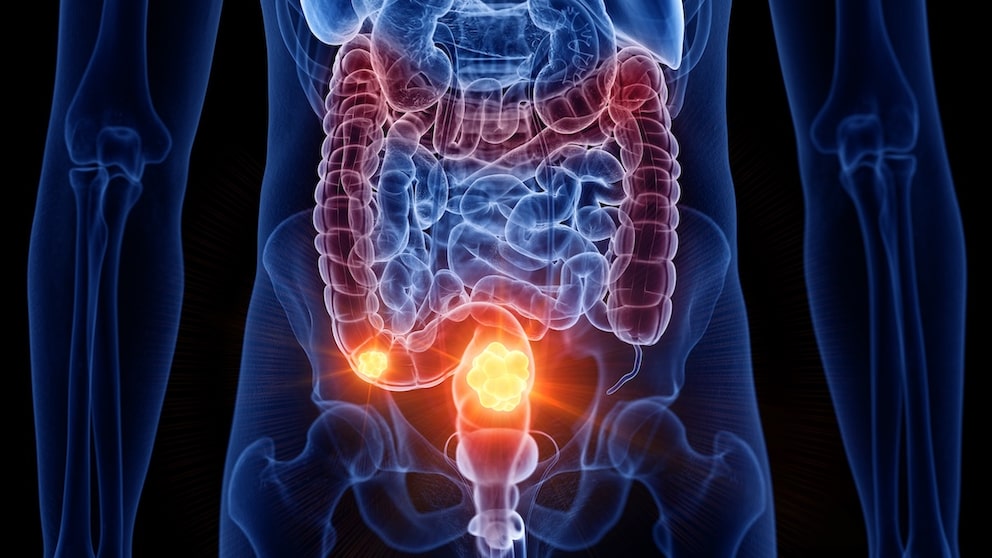December 22, 2024, 2:07 pm | Read time: 3 minutes
An advanced biological age often goes hand in hand with an unhealthy lifestyle. This, in turn, can have further consequences, such as promoting the development of polyps in the intestine. This is the result of a new study. FITBOOK editor Janine Riedle explains how this can influence the risk of bowel cancer.
Biological age reveals how old our body actually is – regardless of our calendar age, i.e., the number of years we have lived. Factors such as diet, physical activity, and sleep patterns have a major influence on this. In short, a healthy lifestyle ensures that, physically speaking, we don’t age as quickly. However, those who do not adhere to such a lifestyle promote a higher biological age, which can have consequences. A new study shows that it significantly affects the risk of bowel cancer.
Overview
Bowel Polyps Increase the Risk of Bowel Cancer
Biological age could play an important role in the early detection of colorectal cancer in the future.1 Scientists have discovered in a study that there is a clear link between accelerated aging at a cellular level and the likelihood of developing polyps in the colon. Such polyps can be benign but represent an increased risk of developing bowel cancer. In other words, they are a kind of precursor.
The aim of these studies was to find out why some people develop health risks or diseases earlier than others despite having the same chronological age. Using epigenetic markers, which can be used to determine biological age, the researchers wanted to find out to what extent these can predict the risk of colon polyps – and, therefore, indirectly, the risk of colon cancer.
Comparison of Biological Age and Polyps in the Colon
The researchers recruited people under the age of 50, whose biological age they first determined using blood samples. To do this, they used DNA methylation. This is a process that examines chemical changes in DNA that serve as markers for biological age. The team used a total of 51 samples.
The results of the biological age were compared with those of a colonoscopy. The researchers took into account potential confounding factors such as gender, body mass index (BMI), smoking status, and family history of colorectal cancer to ensure that the results were not influenced by other variables.
Increased Risk of Colon Polyps
The analyses showed that each “accelerated year,” i.e., each additional biological year compared to the calendar age, is associated with a 16 percent increased risk of colon polyps and thus also increases the risk of colon cancer. Contrary to what had been assumed, factors such as BMI and smoking habits did not influence the risk of bowel polyps.
Another important finding is that gender is also a strong risk factor. “Although the finding on biological age is interesting and perhaps even exciting, male sex remains the strongest risk factor for precancerous polyps,” Dr. Shria Kumar, colorectal cancer researcher and senior and corresponding author of the study, explained in a press release.2 “While we continue to investigate biological age and other risks, we also need to investigate why sex is such a differential risk factor.”

Researchers Identify How Certain Genes Influence the Risk of Prostate Cancer

Study One Factor Increases the Risk of Breast Cancer in Women Aged 35 and Over

Research How Diet Can Influence the Risk of Prostate Cancer
Classification of the Study
“It is quite remarkable that several studies, including ours, have found that biological age provides unique health information and could help us prevent cancer,” Dr. Kumar emphasizes. Above all, she sees a great advantage in the early detection and prevention of colorectal cancer.
However, it should be borne in mind that the study only included 51 samples. This could mean that the results might not apply to a larger study. Furthermore, the study was limited exclusively to the development of bowel polyps – and not explicitly to the risk of bowel cancer.

